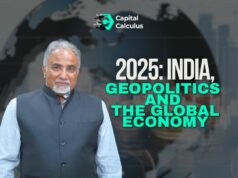NEW DELHI: Last week the Intergovernmental Panel on Climate Change (IPCC), the apex global body monitoring climate set up under the aegis of the United Nations, submitted its sixth assessment report. The findings are a grim wake-up call to the world, especially for the developed countries—the largest polluters in per capita terms. The report maintains that the world is poised on the tipping point of climate change. If the world fails to take up this last opportunity and contain the rise of global temperatures to 1.5 degree centigrade, then it will have to face catastrophe. The IPCC therefore argues that it is “now or never”. It identifies four gaps that need to be addressed if it is to avoid Armageddon: Mitigation, Adaptation, Finance and Communication. India too is vulnerable, especially given that bulk of its populace is yet to experience development. In many ways India’s choices—given the sheer size and potential of the country—make it key to the world’s battle against climate change. We spoke to Minal Pathak, co-author of the IPCC report and Associate Professor, Global Centre for Environment and Energy, Ahmedabad University.




